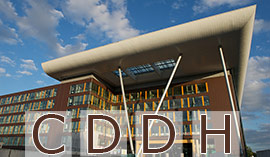This law created the French Anti-Corruption Agency (AFA), a national service that assists the competent authorities and individuals to prevent and detect acts of corruption, trading in influence, bribery, taking an unlawful interest, misappropriation of public funds and favouritism. It's expertise may be sought by the courts, large companies, administrations or communities. The Agency has a Sanctions Committee to monitor the effectiveness of prevention programs in companies and punish breaches of obligations under the law. These penalties can be up to € 1 million for the companies concerned and € 200,000 for managers.
Compliance measures and programs in some companies
In addition, the aforementioned law requires individuals (presidents, general managers or company managers), in their personal capacity, to take measures to prevent and detect corruption. Independently of this responsibility, the legal entity is also responsible to take such measures. For example, managers of French companies or of a group of companies whose parent company is headquartered in France, with at least 500 employees and a turnover of more than 100 million euros, must set up a program for preventing and detecting corruption or trading in influence. This program must be applied in France and abroad, including subsidiaries and controlled companies, and must include the following 8 measures:
- adopt and incorporate into the company's by-laws a code of conduct defining and illustrating the different types of behavior to be prohibited;
- set up an internal alert system to allow the collection of reports;
- create a risk map;
- put in place procedures to assess the situation of customers, first-tier suppliers and intermediaries with regard to risk mapping;
- set up internal or external accounting control procedures;
- provide training for managers and staff most at risk of corruption and trading in influence;
- adopt a disciplinary regime allowing the punishment of employees of the company in case of violation of the code of conduct of the company;
- put in place a mechanism for internal control and evaluation of the measures implemented.
Public Interest Court Convention (CIPJ)
Lastly, the law sets up the Public Interest Court Convention (CJIP) mechanism. This is a form of negotiated case resolution, which allows the public prosecutor to propose to a legal person accused of corruption, money laundering, tax evasion to conclude a judicial agreement in the public interest, alternative to traditional criminal prosecution and trial. Now included in Article 41-1-2 of the Code of Criminal Procedure, it allows the public prosecutor to propose an agreement that dismisses litigation in return for the payment of a fine. The CJIP procedure is directly inspired by the "Deferred Prosecution Agreement" (DPA) that exists in the United States. It aims to obtain heavier penalties, faster, and a prevention of recidivism.
In addition, as a further penalty for a conviction by a court or as a form of enforcement of the CJIP (Section 18), a firm may be required to establish a compliance program, which will be followed by the AFA, to prevent further breaches.



